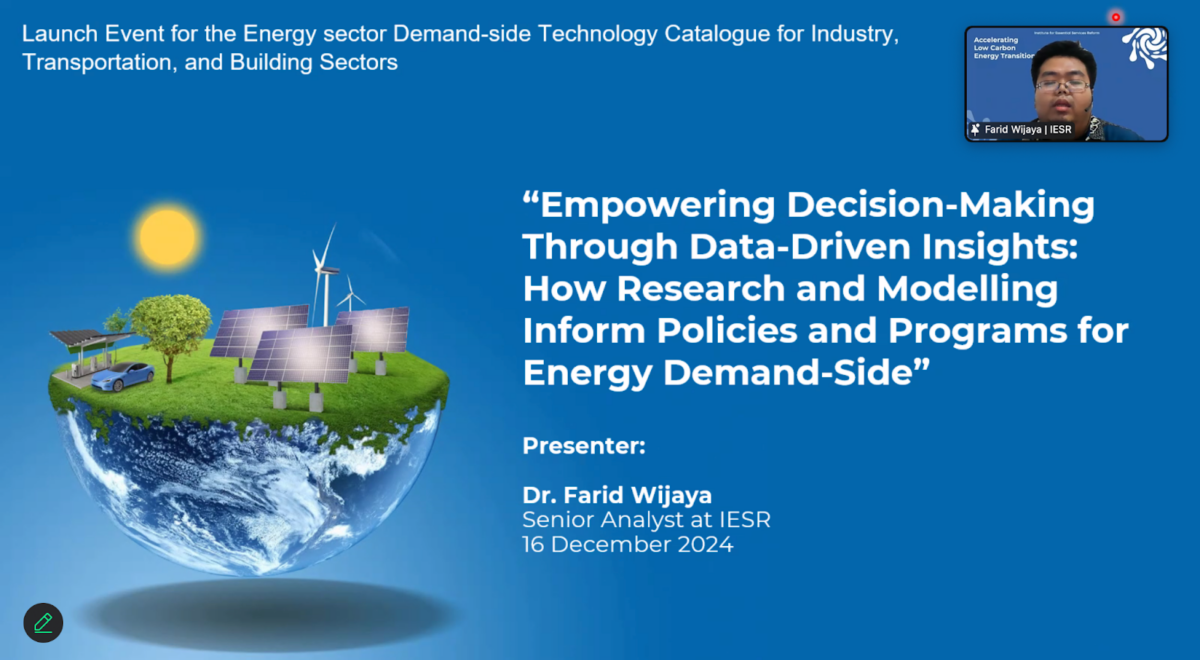Jakarta, December 16, 2024 – Information is an important element in policy making that focuses on energy demand management, efficiency, and conservation. On the energy demand side, accurate and relevant data such as historical energy consumption, data trends, usage evaluation, and opportunity and risk analysis, play a crucial role in supporting data-driven decision making. This was revealed by Farid Wijaya, Senior Analyst for Materials and Renewable Energy, Institute for Essential Services Reform (IESR) at the Event for Demand Side Technology Catalog for Industry, Transportation, and Building Sector organized by the Embassy of Denmark in Jakarta, on Monday (16/12).
“Without the right data and information, we will not know what has happened, is happening, or predict what will happen. These data-driven projections can provide four key insights, namely the preparations needed, the shortcomings to be overcome, the updates or modifications needed, and the things that should be eliminated. Information, regulations, and incentives are key in creating effective and relevant policies and programs,” Farid said.
Furthermore, Farid emphasized that in the transition to renewable energy and energy conservation-efficiency measures, data-driven decision-making is becoming increasingly important to support sustainable development while reducing the risks of climate change. Decarbonization efforts require a complex decision-making framework to efficiently address energy production, distribution and consumption processes.
“Data-driven decision-making, supported by research and data modeling, provides many strategic benefits to stakeholders in energy management and efficiency. These benefits include risk reduction, performance improvement, and acceleration of sustainability efforts,” said Farid.
Farid emphasized that through the use of integrated data and information, Indonesia has a great opportunity to accelerate the energy transition, improve energy efficiency, and achieve sustainability targets. This is not only important to meet national energy needs, but also to make a real contribution to climate change mitigation at the global level.

